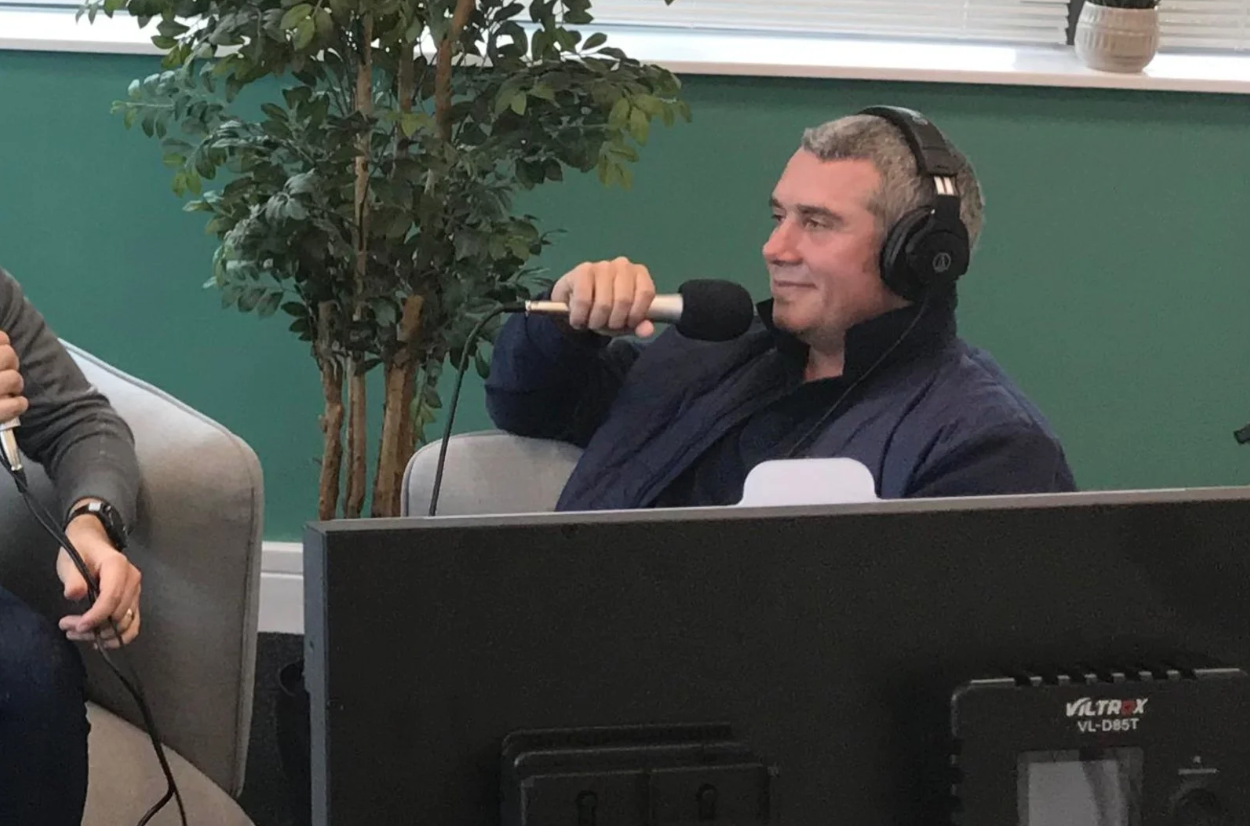By Max Adler
Two great notions have rocked golf in this very young decade.
1. Reigning in distance by rolling back equipment.
2. The establishment of a world super circuit that would relegate the PGA Tour to second-class.
At this point they are just that, notions, and both claim the best interests of the game as their guiding light. While the first has gathered steam with transparency—the USGA and R&A made their voluminous report available to all and is seeking comment before announcing their next wave of specific research topics next month—the second has played out more like a theatrical happening. Is the Premier Golf League for real?
Aside from one announcement from an anonymous email account, the presumed author(s) of this coup have communicated primarily through the puzzled, cautiously interested voices of players they’ve courted.
Well, the press room ventriloquism is over.
Andrew Gardiner, a British attorney and businessman whose association with PGL has been known since he teed it up with Phil Mickelson at the Saudi International, has come forward as the league’s chief executive officer. After three weeks hanging under the radar at events on the PGA Tour’s West Coast Swing, he says, “I figured now was probably time. I’m aware of enough people saying we have to speak, and I wanted to make sure people had the ability to know where we’re coming from.”
If Gardiner wants to make one point clear, it’s that he wants to be seen as a facilitator, not an overthrower. “The planning is all done, the platform is built, the financial backing is in place. Now, this will only happen with the support of the players, the sponsors and broadcasters, and the fans.”
He thinks his proposal, an 18-event schedule of 54-hole tournaments with shotgun starts the first two rounds—with 10 tournaments in the United States, with swings through Europe, Asia, Australia and one stop in the Middle East, plus the majors—could commence in January 2022. Teams of four players would simultaneously compete for an individual and team prize, with a captain deciding before each round which two players’ scores will count for the team. “It’s easier to become emotionally engaged with a team, and it will generate other dimensions of storylines and content,” Gardiner says. As a fan, he likes the idea of being able to make Rory play against Brooks every round, or until a more interesting matchup develops.
An eloquent Englishman and a keen golfer, Gardiner says he’s developed relationships with executives and sponsors of the European Tour throughout his career in finance. And it was 10 years ago, he says, that over an impassioned three-day spurt he wrote a 100-page manifesto on what professional golf could be like if it started over. Many times he shared his fan “flight of fancy,” and almost as many times was surprised not to be called an idiot. Financial backers of the game, he says, wished there was more certainty around when and where the best players in the world would be squaring off. He started to realize that the barriers to pulling off what Greg Norman couldn’t, perhaps, weren’t as tall as he imagined.

One doesn’t arise to the position of chief executive officer of anything by divulging more than intended in an interview. After my phone conversation with Gardiner this morning, many questions remain, but here are my takeaways in no real order.
• Gardiner doesn’t regard Rory McIlroy saying this week, “I’m out,” as particularly damaging. “It brought to mind the Mark Twain quote, ‘Rumors of my death were greatly exaggerated,’ as if this were some fatal wound,” Gardiner says. Gardiner acknowledges Rory as one of the few golfers who truly capture fans, and is intrigued by Rory’s desire to be on the right side of history. “Everything we’ve done in the past six years was meant to be on the right side of history,” Gardiner says. Like being discreet about it all until now. The fact that McIlroy mentioned Arnold Palmer, who was a leader in the PGA Tour breaking from the PGA of America in 1968, Gardiner views as a window in the trees.
• What about the fact that the emotional allegiances to sports teams are generally sown over generations, not organized in an instant around golf equipment makers or agents? Gardiner sees both as potential organizing principles, in addition to geography. “You’ll see the personalities of the teams start to present themselves, and the teams will develop as brands as we go through the process, perhaps rather quickly. … One of the first thoughts that occurred to me as I sat down to write the manifesto was this idea of friends waiting for each other to finish on the 18th green.”
• Is Gardiner familiar with the term sportswashing, or the supporting of sporting events by a country associated with human rights violations to improve its reputation? He is, same as anyone else. “Well, if you’re referring to the financial support we have, our shareholder base is extraordinarily diverse, just north of 60 partners, and we’ve been very selective about each. … The Public Investment Fund of Saudi Arabia is incredibly passionate about golf and its future, and I’m delighted to have them involved.”
• What about the golfer who isn’t exactly a star, ranked 40th in the world or so, who participates in the PGL for a season and then falls out? Where does he go? “That depends whether we achieve collaboration [with the PGA Tour]. And it’s possible we don’t. There will be a draft system in place and an opportunity for that golfer to play his way back in. If he doesn’t, he then becomes like any other golfer who has the freedom to apply to become a member of any other tour.” Gardiner also notes there will be “parachute payments” to ensure no golfers suffer financial hardship as the result of falling out. “When we speak about collaboration, we envisage a stronger structure where everybody is plugged in and the Premier Golf League merely forms the top of the pyramid. … It’s hard to imagine a situation where a player who is regarded as one of the best in the world is prevented from plying his trade wherever he chooses, but I’m not in a position to make that decision now.”
• And the title sponsors of PGA Tour events who also sponsor individual players, like Farmers Insurance and Rickie Fowler, just to name one. Surely, these are strong ties to dismantle. “Should we come to pass, you won’t necessarily see any change in any sponsorship worn by any player,” Gardiner says.
• And just how strict is the 18-event schedule, which with the majors and a Ryder Cup is more than some stars may care to play? Pretty strict, Gardiner says, although there would be the ability to substitute players due to injury.
• The venues?! Aside from the humans who are good at golf, the courses are part of the allure of any great broadcast. Gardiner apologizes for being unable to disclose the names of any venues at this time.
• And the distance debate? Where does the new face of the Premier Golf League stand on the distances elite players are driving it? I’m promised we’ll discuss that next time.
For now, Gardiner concludes that the decision whether this super circuit will come to be “will hopefully be made in the not too distant future.”
Good day.









